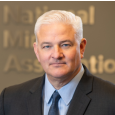Westlake has a unique and long history - from your father founding the company in 1986 to its going public in 2004. How do Westlake’s goals for the future differ from the priorities of the past?
AC: We started with a single plant in Lake Charles, Louisiana, and have grown to nearly 16,000 employees across over 100 sites worldwide. Our history dates back to my father's ventures in Taiwan during the 1950s, to my brother and I joining to start Westlake in 1986. Our legacy portfolio included joint ventures with companies like Gulf Oil Corporation and Mitsubishi Corporation, as well as unique projects like manufacturing Hot Wheels toys and Barbie exclusively for 20 years. Our roots in Asia provided us with a strong foundation in chemical production, leading to our global presence in polymers and packaging materials.
Our future goals embrace both our legacy and the evolving demands of the global market. While our past was focused on expanding our chemical manufacturing capabilities and entering various joint ventures, our future priorities shifted towards a more balanced approach incorporating sustainability and addressing environmental concerns.
The chemicals industry, and particularly plastics, is arguably one of the most vilified. How are you adapting to consumer demands for greater ESG commitments?
AC: Plastics and polyethene particularly are vilified because of plastic waste people see floating in rivers or on beaches. It’s really a waste collection and consumer behavior problem, not a plastic problem per se. We've joined the non-profit Alliance To End Plastic Waste, aiming to raise $1.5bn for technologies and initiatives to reduce plastic pollution. Efforts include recycling post-consumer plastics into new combined versions of the products, with a portion of our output now comprising materials with up to 45% post-consumer content.
Polyethylene is less than 10% of Westlake’s business - our major product in polymers is PVC for consumer durable goods and we want those plastics to last for many decades. PVC doesn’t corrode or rust and while other pipes will crack during an earthquake or tsunami, it’s heavier than water and the density is lighter, so it will not float.
Are there plans to introduce more bio-based solutions in place of petroleum-based polymers?
AC: There are some bio-based polymers but - one, they don’t have all the properties that petroleum-based polymers have - and two, they are very expensive. While bio-based options are more sustainable, they often lack the durability required for certain applications and come at a significantly higher cost. If something degrades fast, it won’t serve its purpose. We haven’t found the right solution yet, we hope to in the future.
LS: We have about a dozen sustainable products: some more successful commercially than others. Westlake Vinnolit is our European PVC operations and our GreenVin® PVC has both renewable power and renewable feedstock. Renewable power offers a 20-30% reduction in greenhouse gas emissions, but the combination offers a 90% reduction. The latter doesn’t have a lot of traction because customers don’t like the economics, so we have a sustainable product publicly out there but there’s a disconnect when it comes to putting the money where your mouth is. Ultimately, we’re trying to understand and meet customer needs.
What’s the cost difference between petroleum-based and bio-based polymers?
AC: Bio-based polymers can cost more than double that of petroleum-based counterparts. However, this is negotiated with customers and varies product by product - it depends on the quality, the grade, and what part of the world you buy it from. While some sustainable options may only carry a 10-20% premium, others (especially those requiring renewable feedstocks) can be much more expensive.
What are the biggest challenges you expect to face in 2024?
AC: The post-Covid economic environment, high interest rates, global conflicts, and a potential manufacturing recession present significant challenges. The U.S. may currently have the strongest economy among developed nations, but the global landscape is fraught with uncertainties affecting demand. Housing market pressures directly impact our primary business in PVC, which is closely tied to construction and infrastructure. Logistical bottlenecks and an oversupply in manufacturing capacities exacerbate things.
What action from a governmental or legislative level would help improve your operations?
AC: Lowering interest rates could significantly aid our operations, especially as inflation shows signs of stabilization. This financial relief would stimulate the economy, making housing more affordable and thereby boosting demand for our products. Achieving carbon emission reduction goals requires substantial investment and innovation. However, regulatory disparities, like the European carbon tax, can put us at a competitive disadvantage unless there's a level playing field through comparable global standards.
When it comes to safety, Westlake has come under fire in recent years. What measures are you implementing to ensure higher standards and regulatory compliance?
AC: Safety is our number one priority, and we're committed to reaching zero incidents. Our recordables and injuries have been coming down but one instance is too many. We’re investing money and redoubling our efforts into training and auditing to ensure mishaps don’t happen. We’re using flammable and potentially explosive hydrocarbons in our operations and the best, safest design in building our plants. But plants are operated by people - it takes time, and culture is the hardest thing to change.
Tell us about your recent acquisition of Hexion’s epoxy business.
AC: One of the biggest applications of epoxy is as a primary layer of coating for anything that needs corrosion prevention e.g., ships, cars, houses, and bridges. It’s also used in windmill blades over 100 meters long, so longer than a football field! Unfortunately, the windmill business is not as robust as people expected. Developers have financial issues, but we believe windmills are a critical area for future development. Epoxy is also broadly used in the electronic semiconductors in computers and we intend to grow this business.





